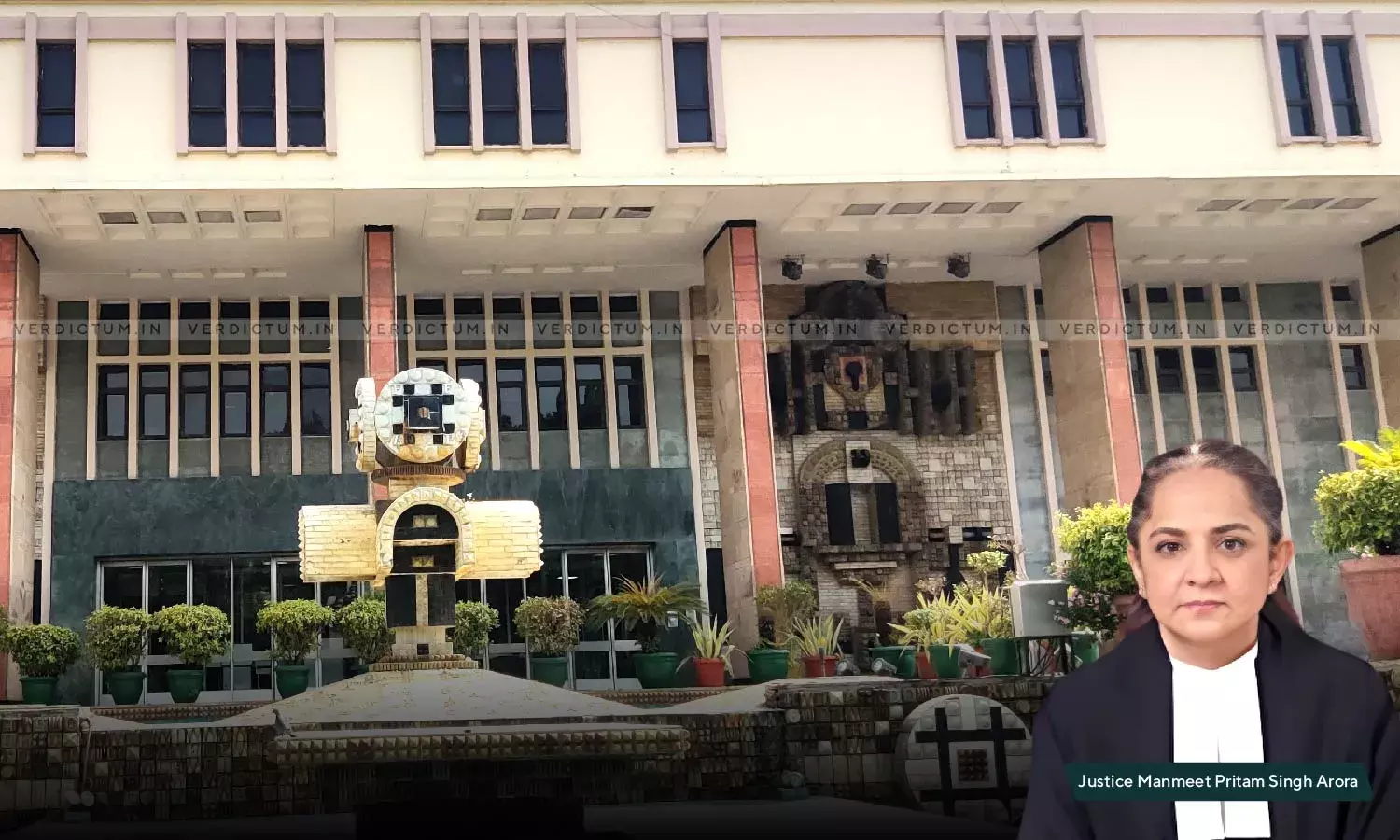Delhi HC Sentences Wife To 1 Month Imprisonment With Penalty For Willfully Violating Settlement Agreement With Husband
The Delhi High Court recently on finding a wife willfully violating a settlement agreement with her husband, imposed a penalty of Rs. 2000 and even sentenced her to simple imprisonment for month. The Court found her guilty of civil contempt under Section 2(b) of the Contempt of Courts Act, 1971.
The contempt petition was filed by the husband in the matter, being aggrieved by his wife’s willful non-compliance of the terms and conditions mutually agreed between them under a settlement agreement, and the affidavit of undertaking filed before the Family Court, Saket Courts, New Delhi
“The Respondent has not tendered any apology in her reply and has, to the contrary as noted above, boldly asserted that she is not bound by the settlement agreement and the undertakings given to the Court. This Court is conscious that the power of contempt has to be exercised cautiously; however, there are no mitigating circumstances in this case where the Respondent has outrightly refused to comply with her undertaking. The Petitioner has on the other hand agreed to take all steps necessary for performing the terms and conditions of the settlement agreement”, a bench of Justice Manmeet PrItam Singh Arora observed in the matter.
Advocate Prabhjit Jauhar appeared for the petitioner and Advocate Zeba Khair appeared for the respondent.
In the pertinent matter, the marriage between the parties was solemnized in 2015, however, due to the temperamental differences; the parties started living separately in 2017. There were 20 legal proceedings pending between the parties in different forums all arising out of their separation in marriage.
Resultantly, a comprehensive settlement agreement with 56 clauses was framed for bring an amicable resolution to the disputed and difference between the parties under the aegis of the Principal Counsellor appointed by the Family Court.
The parties in dispute in their settlement agreement and the affidavit of undertaking had specifically made a provision to the effect that if either party commits a breach of the terms and conditions, the party committing breach would be liable to be punished under the provisions of the Contempt of Courts Act, 1971.
The First Motion petition for divorce by mutual consent under Section 13(B) (1) of the Hindu Marriage Act, 1955 was duly executed by the parties and filed before the Family Court.
However, disputes arose between the parties with respect to procurement of certain ancillary documents regarding a property. The Respondent-wife was insistent that without receipt of the said documents she was unwilling to accept the execution of the Gift Deed.
Therefore, the Petitioner filed the present contempt petition stating that by not making payment of the maintenance charges to the society as per clauses 20 and 21 of the settlement agreement, the wife was in gross violation of the said agreement.
The Court, considering the submissions made and the terms of agreement agreed to by the parties noted that the Respondent by failing to honour her undertaking was ‘lowering the authority of the Court and interfering in the administration of justice’.
It was also noted that despite the court's assurance, that a smooth transfer of the subject property in the records of the Society could be monitored under aegis of the Court, she however, rejected the said offer and took a clear and unequivocal stand.
However, the Court while giving an opportunity to purge the contempt directed, “in case, the Respondent exhibits her apology by complying with the terms and conditions of the settlement agreement within a period of two (2) weeks from today with respect to execution of the Gift Deed and payment of maintenance charges to the society; and further, undertakes not to proceed with the legal proceedings filed by her as enumerated in clause 27 of the settlement agreement and tenders an unconditional apology to this Court, the punishment of undergoing simple imprisonment will be recalled by this Court, subject to the respondent complying with the aforesaid direction within the next two (2) weeks. This Court therefore, suspends the sentence of imprisonment awarded to the Respondent for a period of two (2) weeks”.
“It is trite law that an undertaking given to the Court binds the party and having given the undertaking the party is not at liberty to renege from the said undertaking treating it like an ordinary contract. It is for this reason that at the time of settlement, parties after entering into an agreement take the precaution of filing the same before the Court, have the Court’s seal the said agreement and bind the parties to the same by having the undertaking tendered to the Court. In the facts of this case, each of the above steps were taken on 01.09.2022, 03.09.2022 and 14.09.2022. If parties such as the Respondent are permitted to walk away from their undertaking, the faith reposed by litigants in the judicial system and the finality of orders of the Court will be eroded”, the judgment further read.
Cause Title: Anurag Goel v. Chhavi Agarwal [Neutral Citation: 2023:DHC:5597]
Click here to read/download the Judgment












